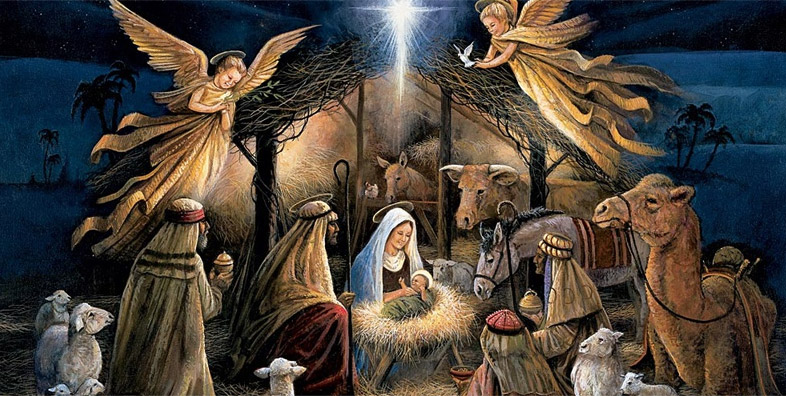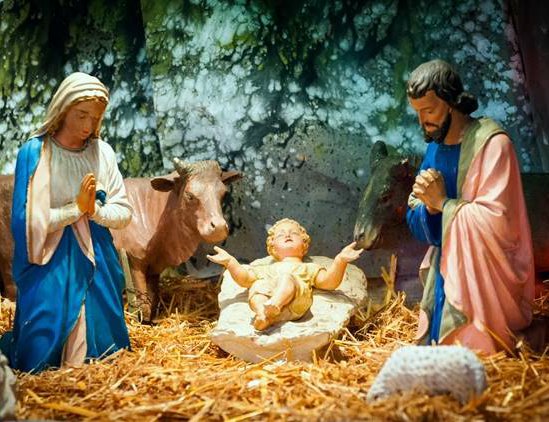Honoring Memory Through Holiday Traditions: The Significance of Commemorative Christmas Celebrations
Related Articles: Honoring Memory Through Holiday Traditions: The Significance of Commemorative Christmas Celebrations
Introduction
With great pleasure, we will explore the intriguing topic related to Honoring Memory Through Holiday Traditions: The Significance of Commemorative Christmas Celebrations. Let’s weave interesting information and offer fresh perspectives to the readers.
Table of Content
Honoring Memory Through Holiday Traditions: The Significance of Commemorative Christmas Celebrations

Christmas, a time brimming with joy, laughter, and the spirit of giving, also carries the weight of memory. For many, the holiday season is not only about present-day festivities but also a poignant opportunity to honor loved ones who are no longer physically present. This act of remembrance, often expressed through specific traditions and rituals, serves as a powerful testament to the enduring impact of those who have passed.
The act of commemorating loved ones during the Christmas season is deeply rooted in human nature. It stems from the innate need to maintain a connection with those who have left us, to keep their memory alive, and to ensure their absence is felt not as a void but as a presence woven into the fabric of our lives. This is achieved through a variety of practices that vary from family to family, each imbued with personal meaning and deeply held sentiment.
The Power of Rituals and Traditions:
Commemorative Christmas celebrations are often marked by specific rituals and traditions that serve as tangible expressions of remembrance. These can range from simple gestures like lighting a candle in their honor to more elaborate practices like sharing their favorite holiday stories or incorporating their favorite recipes into the Christmas feast.
- The Symbolic Candle: A single candle, placed prominently on the table or near the Christmas tree, can symbolize the loved one’s enduring presence. The flickering flame can be a source of comfort, reminding those present of their warmth and light in their lives.
- Sharing Memories: Gathering around the Christmas tree or during a festive meal, families often share stories, anecdotes, and cherished memories of the departed. This act of storytelling serves to keep their legacy alive and fosters a sense of connection across generations.
- Honoring Their Favorite Recipes: Including a special dish that the deceased loved in the Christmas feast can be a poignant way of honoring their memory and their presence in the heart of the family.
- Decorating with Personal Touches: Adding a personal touch to the Christmas decorations, like a photograph, a favorite ornament, or a handwritten note, can create a tangible connection to the deceased and personalize the holiday celebration.
Beyond Practicality: The Emotional Significance:
These rituals and traditions are not merely symbolic acts; they hold profound emotional significance. They provide a framework for grieving, allowing families to express their sadness, share their memories, and find solace in the shared experience of remembering. These acts of remembrance also serve to keep the bond between the living and the deceased alive, ensuring that their memory continues to shape the lives of those who remain.
Benefits of Commemorative Christmas Celebrations:
Engaging in these commemorative practices can offer several benefits for those grieving:
- Emotional Processing: The act of remembering and honoring a loved one provides an outlet for emotional processing, allowing individuals to acknowledge their grief and begin to heal.
- Sense of Connection: These celebrations strengthen the bonds within families and communities, fostering a sense of shared memory and a collective understanding of loss.
- Finding Meaning in Grief: Commemorative rituals can help individuals find meaning in their grief, transforming the pain of loss into a testament to the enduring love and impact of the deceased.
- Keeping the Memory Alive: These practices ensure that the memory of the loved one remains vibrant and relevant, preventing them from fading into the past.
FAQs Regarding Commemorative Christmas Celebrations:
Q: Is it essential to follow specific traditions for commemorating loved ones?
A: There is no single right way to commemorate loved ones. The most important aspect is finding a way that feels authentic and meaningful to the individual and their family.
Q: How can one incorporate commemorative practices into the Christmas celebration without overwhelming the festivities?
A: Start with small, meaningful gestures. A single candle, a shared memory, or a special dish can be enough to honor a loved one without overshadowing the joy of the holiday.
Q: How can children be included in these commemorative practices?
A: Children can be encouraged to share their memories of the deceased, draw pictures, or create a special ornament in their honor. This helps them understand and process the loss while celebrating the life of their loved one.
Q: What if there are conflicting opinions within the family about how to commemorate a loved one?
A: Open and honest communication is key. Families should discuss their feelings and preferences, finding a compromise that respects everyone’s needs and wishes.
Tips for Commemorative Christmas Celebrations:
- Prioritize Open Communication: Talk openly about the deceased and their impact on the family. Encourage everyone to share their memories and feelings.
- Create a Space for Remembrance: Designate a specific space in the home where family members can gather to share memories and reflect on the deceased.
- Incorporate Personal Touches: Add personal touches to the Christmas decorations, like photographs, letters, or favorite ornaments, to create a tangible connection to the deceased.
- Share Stories and Traditions: Share stories and traditions associated with the deceased to keep their memory alive and pass on their legacy.
- Focus on the Positive: While acknowledging the loss, remember to celebrate the life and joy that the deceased brought into the world.
Conclusion:
Christmas, a time of celebration and togetherness, provides a unique opportunity to honor the memory of loved ones who have passed. Commemorative celebrations, marked by personal rituals and traditions, offer a powerful way to keep their memory alive, to process grief, and to find solace in their enduring presence. By embracing these practices, we can transform the pain of loss into a testament to the lasting impact of those we love and cherish. Through these acts of remembrance, we ensure that their legacy continues to shine brightly, even in their absence.
![History of Christmas Traditions [Infographic] - Pretty Opinionated](http://www.prettyopinionated.com/wp-content/uploads/2016/12/History-of-Christmas-Traditions-a-680x1257.jpg)







Closure
Thus, we hope this article has provided valuable insights into Honoring Memory Through Holiday Traditions: The Significance of Commemorative Christmas Celebrations. We thank you for taking the time to read this article. See you in our next article!